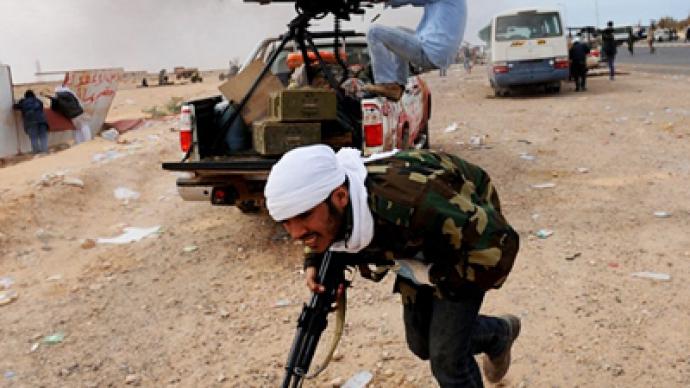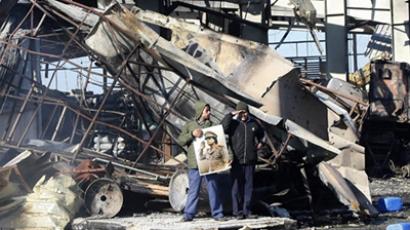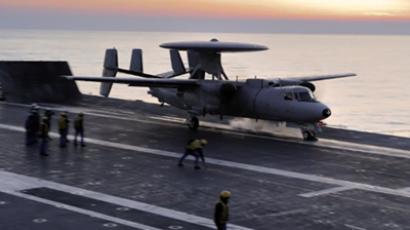Rebels' chances depend on NATO's determination

The Libyan opposition met with British diplomats, asking for more help and weaponry. Western allies have not yet decided on whether to arm the rebels, but the US agreed to extend its participation in coalition air strikes until Monday.
Some think the lack of organization and training is making it hard for the opposition to win the war against Gaddafi. Gaddafi’s armed forces are just a few miles ahead. For the rebels, this is a time to cool their guns and regroup.With every one man facing 10 on the other side, discipline is vital.Every day in the rebel stronghold of Benghazi, more pictures of killed or missing are put up on walls.And for the first time, at least a dozen rebels are reported to have been killed in a coalition strike.Still, many locals say they realize they have no choice but to accept the losses.“There’s no comparison between Gaddafi’s force and our force. Without the support of the international community, we will not be a success,” said one local man. Meanwhile, the UK is considering sending non-lethal equipment to Libyan rebels and suggests it could also supply weapons to rebel forces. The Associated Press quoted British Foreign Secretary William Hague as saying that they could do so in some circumstances, despite an arms embargo, but have not yet decided on the matter.Asli Bali, a law professor at UCLA, believes the coalition is looking for a legal precedent to start arming and training the rebels, despite an arms embargo covering Libya.“Obviously there is some creative lawyering taking place,” she said, “to reread Security Council resolution 1973 as expansive enough to authorize the financing and arming of rebels. There have been a number of arguments that that could be encompassed by ‘all necessary measures to protect civilians.’ So I think a window has been created. And I think there’s been an indication from the French and the British, even prior to resolution 1973, that they were prepared to provide some kind of assistance.”
More than two weeks have passed since the no-fly zone was put into effect over Libya.NATO planes have been trying to reign in Gaddafi’s heavy artillery, clearing the way for the rebel fighters on the ground.And there is even speculation Egypt and the US may be secretly training them.But the frontline is still shifting back and forth, with the rebels achieving only brief advances west.“The solution is only in two ways. Either you kill him or you arm us so we can get rid of him!” argued another civilian. The opposition has announced they are ready to take weapons from any willing state in order to beat Gaddafi. But it is highly unlikely more weapons will help improve discipline. Many are teenagers with neither training nor combat experience.“It seems that they are not very much representative of what’ is going on on the ground,” said Arab affairs journalist Nabila Ramdani. “We are seeing very articulate people talking to various governments in Europe but also with the Americans. Whereas on the ground we are seeing rebels, armed rebels, completely disorganized, who do not… seem to have any political points to make aside from, of course, getting rid of Gaddafi.”According to some estimates, only 20 percent of Gaddafi’s military might have been destroyed despite the coalition’s efforts. Instead, his forces are reported to have changed tactics, camouflaging themselves as rebels to confuse NATO pilots in the sky.With such poor levels of organization and training, the rebels alone do not stand a chance against Gaddafi’s superior forces.And it is only with the help of the alliance that something can be achieved. The question is, how far is NATO itself planning to go?














